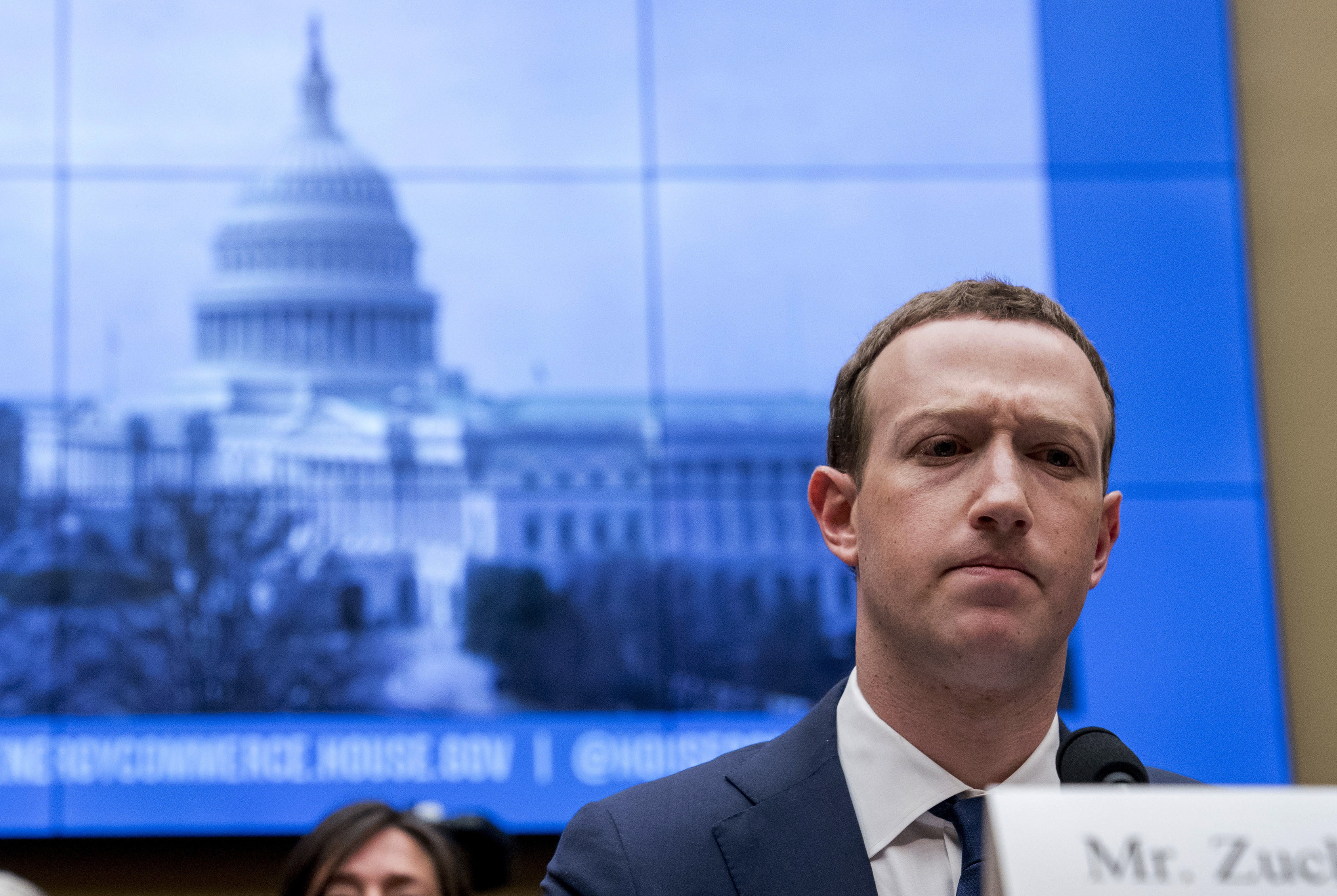- Massachusetts Democratic Senator Elizabeth Warren just announced a new plan for regulation that would break up tech firms such as Facebook, Amazon, and Google.
- Under the plan, some acquisitions such as Facebook’s purchase of WhatsApp and Instagram and Amazon’s acquisition of Whole Foods would be rolled back.
- Senator Warren announced the proposal in a campaign email on Friday in an email with the subject line, “It’s time to break up Amazon, Google, and Facebook.”
Democratic Senator Elizabeth Warren of Massachusetts announced a regulatory plan that would propose breaking up American tech giants such as Facebook, Amazon, and Google on Friday.
“America’s biggest tech companies are controlling more and more of our digital lives,” Senator Warren wrote in a campaign email announcing the plan under the subject line, “It’s time to break up Amazon, Google, and Facebook.” The plan was first reported by The New York Times.
Under her proposal, some acquisitions made by these tech firms in recent years would be rolled back. This would include Facebook’s $19 billion WhatsApp and $1 billion Instagram deals, Google’s acquisition of navigation app Waze and ad platform DoubleClick, and Amazon’s purchase of Whole Foods and online shoe and clothing retailer Zappos, Senator Warren wrote in a Medium post detailing the plan.
The proposal would also require that dual entities such as Amazon Marketplace and Amazon Basics be split apart, and tech firms would be prohibited from sharing or transferring user data with third parties.
Senator Warren is proposing passing legislation that would categorize large tech firms with an annual global revenue of $25 billion or more that also operate online marketplaces as "Platform Utilities." These "Platform Utilities" would not be able to own both the platform utility and any participants on that platform, and they would be required to meet a "standard of fair, reasonable, and nondiscriminatory dealing with users." Smaller companies with an annual global revenue of between $90 million and $25 billion wouldn't be required to separate from any participant on the platform, but would still be required to uphold a "standard of fair, reasonable, and nondiscriminatory dealings with users."
"Here's why tech companies with nearly unfettered power aren't a good thing," Senator Warren wrote. "They buy potential rivals, like Facebook did with Instagram and WhatsApp, limiting innovation and choice. They create marketplaces that they own and compete on - a conflict of interest that lets them snuff out smaller rivals - like Amazon and Google have done for shopping, search tools, and online ads."
Calls for regulating big tech have increased over the past year
The push for the regulation of big tech firms like Facebook, Amazon, and Google has been brewing in Congress for quite some time. Last year, for example, Senator Mark Warner (D-VA) proposed a plan for regulation tech firms that included taking steps such as implementing privacy protection rules similar to the General Data Protection Regulation (GDPR) and labeling bot accounts.
Advocacy groups have also called for the government to intervene in how Facebook operates. In a letter to the Federal Trade Commission (FTC) sent in January, organizations such as the Electronic Privacy Information Center, Color of Change, and Government Accountability Project among others urged the commission to impose fines on the social giant and unwind its acquisitions of WhatsApp and Instagram.
The proposal comes after Facebook in particular has come under increased scrutiny when it comes to its data privacy practices. In explosive reports from The New York Times and The Guardian last March, it was revealed that political analytics firm Cambridge Analytica improperly gained access to the data of tens of millions of Facebook accounts. The social giant also revealed to Congress last summer that it had special arrangements with dozens of companies that provided access to friends' data even after it had said it was cutting off such access, furthering concerns about how Facebook handles user data.
Facebook has come under fire overseas as well. Just last month, British lawmakers accused the tech firm of behaving like "digital gangsters" in a report on the spread of misinformation published by the British Parliament's Digital, Culture, Media and Sports Committee.
Facebook has indicated in the past that it would be open to regulatory plans. CEO Mark Zuckerberg said last April that federal regulation of Facebook and big tech companies is "inevitable" when speaking to members of the House Energy and Commerce Committee. Facebook Chief Operating Officer Sheryl Sandberg also said the company would be "open to regulation" following the Cambridge Analytica revelations.
The announcement also comes as Senator Warren is planning to hold an event on Friday in Long Island City, the same neighborhood where Amazon had planned to build a second headquarters before it scrapped plans to do so last month.
Here's the full email from Senator Warren announcing the plan:
Think about all the time you spend on the internet - checking the news, shopping, catching up with old friends, reading emails like this one.
Well, more and more of the things we do online are being controlled by a smaller and smaller group of giant corporations.
They've mastered a very powerful business model: Monopolize their platform and force other companies, media platforms, and publishers out of business.
If you buy something online, there's a nearly 50% chance that you're going through Amazon. If you go to any website, there's more than a 70% chance that it's owned or run by Google or Facebook.
America's biggest tech companies are controlling more and more of our digital lives.
Here's why tech companies with nearly unfettered power aren't a good thing: They buy potential rivals, like Facebook did with Instagram and WhatsApp, limiting innovation and choice. They create marketplaces that they own and compete on - a conflict of interest that lets them snuff out smaller rivals - like Amazon and Google have done for shopping, search tools, and online ads.
They bully cities and states into showering them with massive taxpayer handouts - and spend the profits they get from being the only game in town to lobby and rig the rules even further in their favor.
They even scare investors away from funding new startups - because what's the use in going up against a giant corporation that'll just snap you up or drive you out of business?
This all means less competition, less innovation, and a worse internet for all of us. Think about it: If you're not happy with Facebook's privacy policy, maybe you'd like to spend your time on Instagram instead. Except, wait: Facebook owns Instagram.
We've got to call it out. And we've got to do something about it. So today, I'm proposing a new plan to break up the biggest tech companies and make sure these corporations don't get so powerful that they undermine our democracy.
Add your name if you agree: It's time to break up our biggest tech companies like Amazon, Google, and Facebook.
There's a long history in America of breaking up companies if they have too much power in the marketplace: Standard Oil, AT&T, and the railroad industry led to the bipartisan creation of our first antitrust laws.
What I'm proposing is right in line with our country's history - and it's a big part of what has allowed our economy to grow and new companies to thrive.
Here's how our plan works, Bill - there are two big pieces to it.
#1: Pass a new law for "Platform Neutrality."
If you're a ginormous tech company that's created a platform for other businesses to compete on - like the Amazon marketplace, or the Google ad exchange - you shouldn't also own a company that sells on it. Put simply: You shouldn't be able to tilt the playing field in your own direction.
#2 Appoint regulators who'll use existing legal tools to unwind tech mergers that illegally undermine competition.
With the antitrust laws that are already on the books, we can undo big mergers that never should have been approved in the first place - and give smaller and medium-sized companies a fighting chance to compete with the big guys. That means we break Facebook away from Instagram and WhatsApp, Amazon away from Whole Foods, Google away from Nest, and more. We could be doing this right now - but we need a president (ahem) who'll appoint regulators to make it happen.
So what would the internet look like after all these reforms?
Here's what won't change: You'll still be able to go on Google and search like you do today. You'll still be able to go on Amazon and find 30 different coffee machines that you can get delivered to your house in two days. You'll still be able to go on Facebook and see how your old friend from school is doing.
Here's what will change: Small businesses would have a fair shot to sell their products on Amazon without the fear of Amazon pushing them out of business. Google couldn't smother competitors by demoting their products on Google Search. Facebook would face real pressure from Instagram and WhatsApp to improve their user experience and protect our privacy. Tech entrepreneurs would have a fighting chance to compete against the tech giants.
This is how we'll make sure we get more competition and more new ideas in the tech economy, instead of just a few giant tech companies calling all the shots - and regular people not having much say in the tools we use everyday.
That's how we get innovation. That's how we get an internet that does a better and better job of letting us stay connected with each other - from pictures of grandkids to emails and petitions like this one. That's how we protect our privacy in a rapidly changing world.
We can get this done, Bill. We can make big, structural change. But it's going to take a grassroots movement, and it starts right now.
Sign the petition to support our plan to break up the biggest tech companies like Amazon, Google, and Facebook:
https://my.elizabethwarren.com/ew-breakupbigtech
Thanks for being a part of this,
Elizabeth
Read more on the subject:
- Elizabeth Warren says she wants to break up big tech companies including Amazon, Google, and Facebook
- Elizabeth Warren's plan to break up tech giants would force Amazon to roll back its acquisition of Whole Foods
- Elizabeth Warren's plan to regulate tech giants would force Facebook to break up with WhatsApp and Instagram
- Facebook and Google will be punished with giant fines in the UK if they fail to rid their platforms of toxic content
- Facebook accused of acting like 'digital gangsters' in a devastating report by lawmakers

